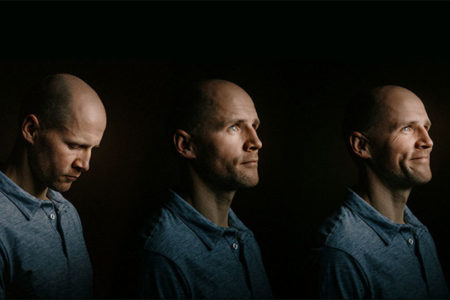Meaningless?
A favorite site on any Holy Land tour is Caesarea Maritima. The views alone from this ancient port city are breathtaking. Situated on the Mediterranean Sea, where the bright blue water crashes against antiquity, the city dates back millennia; and the sunsets are unforgettable.
What makes the site even more enticing for Christians is its biblical significance. The apostle Peter ministered to Cornelius in Caesarea (Acts 10); and the apostle Paul was imprisoned there for two years, waiting to board a boat to appeal to Caesar in Rome for the sake of the gospel (chaps. 23—26). From Caesarea you can see how Peter’s and Paul’s lives overflowed with meaning and purpose to worship God and make Christ known.
But not everyone in Caesarea felt life had meaning. The walkways of Caesarea today are lined with Roman statues; stone columns; and even sarcophagi, which are stone coffins engraved with inscriptions and sculptures. One sarcophagus was designed for Menophila by her husband Eliphis. On it he inscribed, “no man is immortal and that is the essence of life.” From what he wrote, I don’t think the two had a proper conversation about their funerals or what would be engraved on their sarcophagi. For thousands of years, Menophila’s coffin has spoken clearly about the futility her husband felt. For Eliphis, life was to eat, work, die. The end.
Sadly, the “meaninglessness” of life isn’t confined to this ancient inscription. It pervades time, culture, and people. A study done in the United Kingdom reported that 89 percent of young adults (ages 16 to 29) say their lives are devoid of purpose and meaning. Eighty-four percent believe they are failing to live their best lives.
When such a large percentage of young adults believes life is meaningless, there is reason to be concerned. How is it possible that an advanced country with such a large economy and robust social structure has a problem with meaninglessness?
Anthropologists can look at these statistics and develop a litany of reasons why people feel unfulfilled, but we don’t need to be social scientists to connect the dots. Secularism is rapidly becoming the dominant religion, especially among the younger generations. The number of people in the United Kingdom who identify as Christian has plunged from 66 percent in 1983 to 38 percent in 2019. As religious affiliation declines, confidence ticks up in education and legal and business programs. People are trying to find meaning and purpose through man-made institutions, rather than through a relationship with their Creator.
If we think that’s a problem for the United Kingdom alone, we should think again. The people who consider themselves “unaffiliated” religiously make up the second largest “religious” group in much of the Western World. In the United States, statistics show that most young adults lack a meaningful relationship with a friend or confidant, and 68 percent say they feel no one knows them well. This isolationism and lack of meaningful relationships can lead to depression, anxiety, and loneliness.
The doctrine of secularism contends that purpose and meaning are found when we look inside ourselves. Or we can manufacture purpose and meaning through our careers; college degrees; or better yet, the government. It’s the same lie Satan proffered in the Garden of Eden, albeit repackaged for our modern age: Find meaning and purpose in life without God!
It’s not surprising that Pew Research found that people who are “religious” are happier, healthier, and more likely to get involved in their communities. Why? Because their purpose and meaning in life are derived from worshiping and serving the Lord.
In a post-Christian society, the church must be bold, like Peter and Paul, to show that a meaningful life can only be found in the One who gives life: Jesus Christ. As the apostle Paul said, “To live is Christ, and to die is gain” (Phil 1:21).









Excellent article! Age old question, can man live without God? Answer, not very well! All is meaningless without Jesus!
Whether you live comfortably or in a dungeon as Paul did.